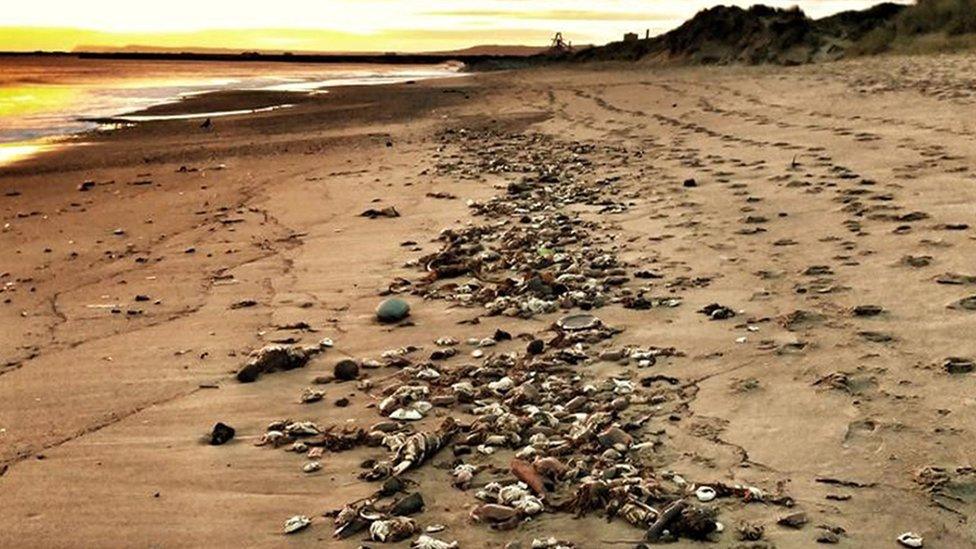University of Bath students design system to prevent algal blooms
- Published

The PhoBac team at the iGEM international synthetic biology competition
Students are pioneering a system to extract harmful phosphates from wastewater to reuse them as fertiliser.
University of Bath researchers said a genetically modified bacteria could one day solve the dual problem of nutrient pollution and phosphate depletion.
It is hoped synthetic biology can help end agriculture's reliance on phosphate mining to make fertiliser.
At the same time, the new "closed loop" system could reduce the occurrence of devastating algal blooms, they said.
PhoBac
Dubbed the PhoBac project, the team, external genetically modified the benign bacteria bacillus subtilis so that it uptakes far greater quantities of phosphate than it needs.
The goal is to release it into wastewater in treatment plants, because even treated sewage can still have very high levels of nutrients in it when it is released back into the environment.
Phosphates, in combination with nitrates, can cause eutrophication - excessive plant or algal growth that starves other life of light and oxygen, sometimes creating vast dead zones.
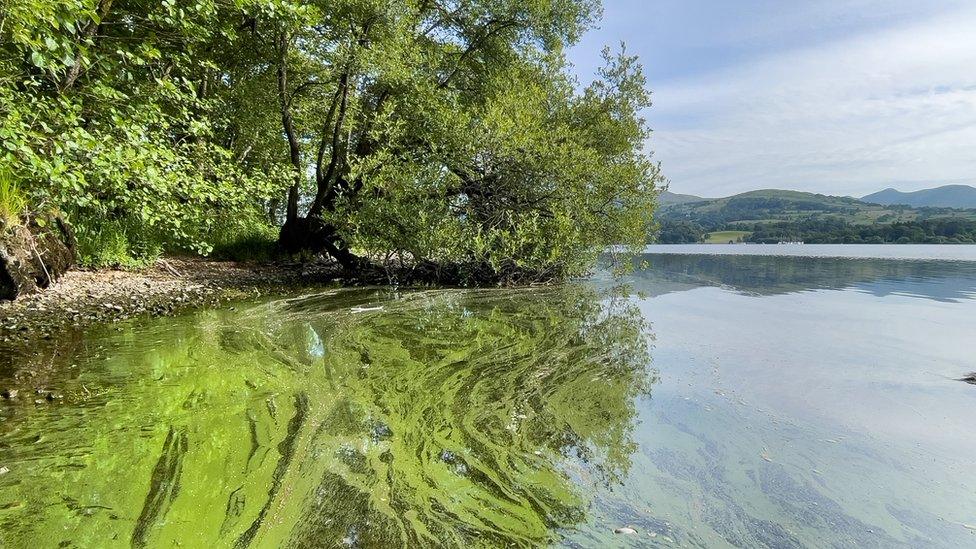
Algal blooms can be devastating for aquatic ecosystems
Meanwhile phosphate rock is only found in a handful of countries and is a rapidly depleting resource.
Gregorio Nepomuceno Queiroz, who led the project, said: "The phosphate that has been painstakingly mined enters our body through our food and is then flushed down the drain."
Speaking to BBC West, Mr Queiroz said: "(Phosphate) is a resource that will be depleted over time and it's important to come up with a sustainable alternative, which is where we jump in."
The PhoBac project has already been awarded a gold medal at the iGEM international synthetic biology competition.
'We have to be cautious'
The first phase of the project, developing a bacteria that removes phosphates from water and releases it in response to plant signals when in soil, has been completed.
Mr Queiroz warned it could be many years before PhoBac receives regulatory approval.
"We have to be cautious about things - some people are quite wary about genetically modified organisms and to some extent I think that's quite important," he said.
"It's important that we are kept in check."
Wastewater
Currently, the team envisages the final PhoBac system will see the bacteria encased in tiny beads with a semi-permeable membrane that allows water in but prevents the bacteria from escaping.
The beads could then be filtered out of the water at the end of the treatment process.
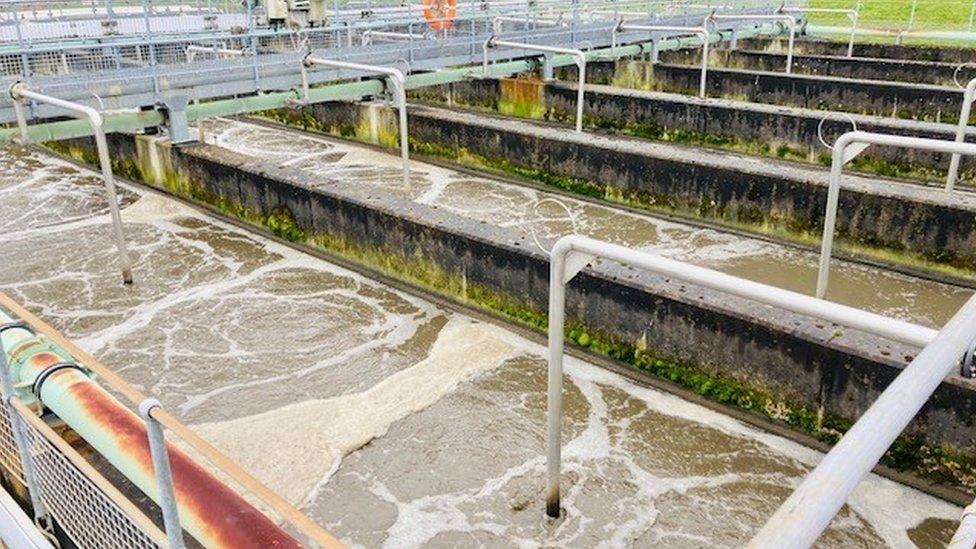
PhoBac could be used at wastewater treatment plants in future
Despite its potential to mitigate algal blooms, it is unlikely the system would ever be released directly into waterways.
Mr Queiroz said: "We are already hesitant enough about putting it into a field, for example, which is already kind of isolated.
"In a river we would have very, very little control, unless we came up with a system that was extremely safe, where we knew the beads would never be released or would never go our of our controlled area.
"But we are not really thinking down that route, at the moment we are just thinking about wastewater treatment plants."
Jeremy Boyle, a final year biology student, involved in the project said he was hopeful about what PhoBac might achieve in future.
"PhoBac at scale promises to stabilise and reduce agricultural costs, which are currently volatile and on the rise," he said.
"It also has the potential to reduce the phosphate levels in our rivers and streams, rehabilitating aquatic ecosystems along with fish and invertebrate biodiversity."

Follow BBC West on Facebook, external, Twitter, external and Instagram, external. Send your story ideas to: bristol@bbc.co.uk , external
Related topics
- Published18 August 2022
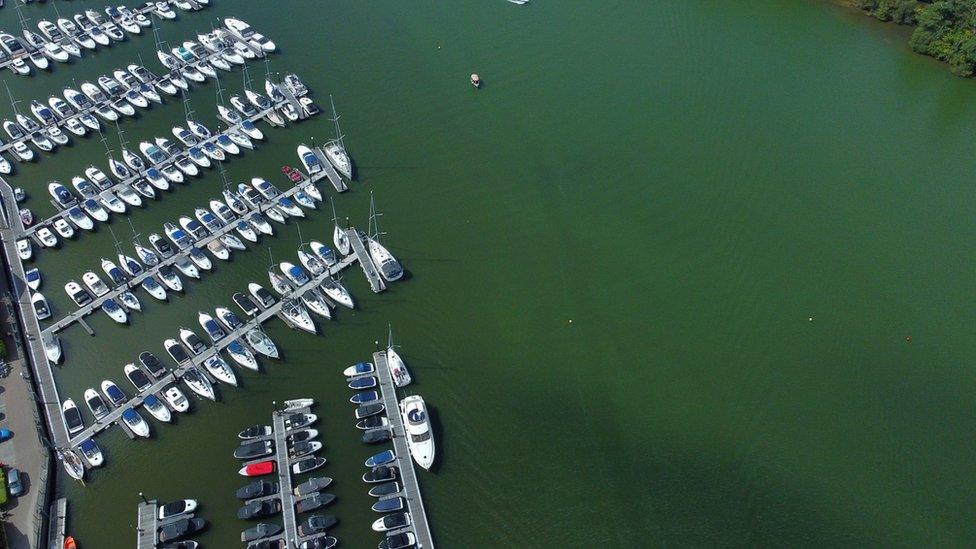
- Published23 June 2022
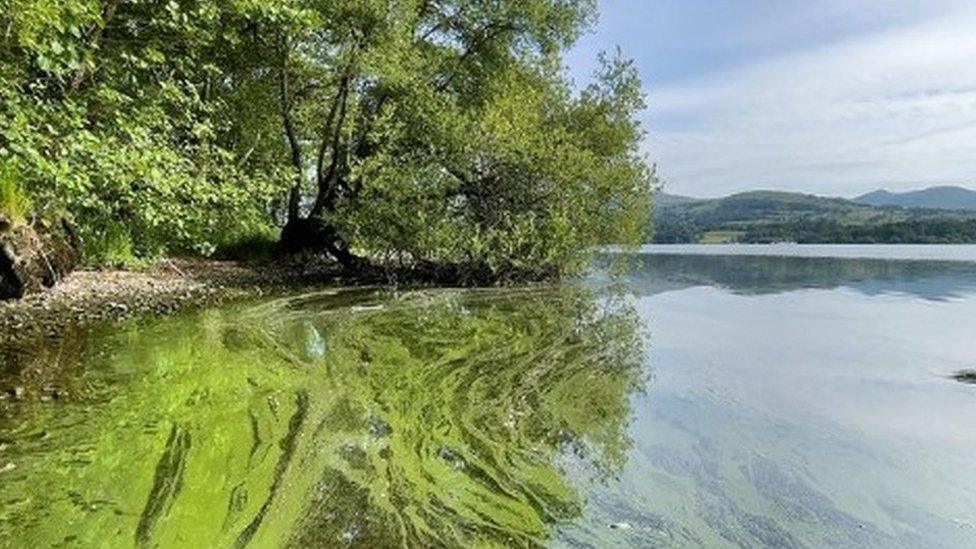
- Published3 February 2022
